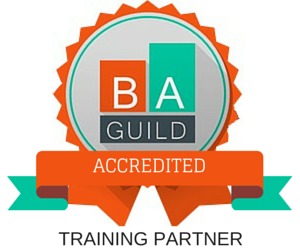
Business Strategy to Execution
Course Description
This is the second of two courses that make up the Business Architecture Certificate. Business Architecture is the bridge between business strategy and business execution. Business Strategy to Execution focuses on the “back stage” of business architecture which includes defining capabilities, their enablers, and the strategic alignment to those capabilities. In the past this course was offered as 8 nights, but the new boot camp professional development workshop format allows this course accessibility to professionals outside the Minneapolis and St. Paul area, indeed even out of the Midwest. Certified by the Business Architecture Guild, this course can help you help you and your organization connect resources and strategy to its business model, and more importantly, to your customer’s journey.
Price: $2,355.00 Early Bird Rate: $2,119.50
- Course Texts: no texts are used in this course
- Food: a light lunch is provided
- Free Parking
- CEUs: 3.36
Cancellation Policy:
Class cancellations must be done fourteen full business days before the class start date. No refunds for cancellations of less than fourteen full business days. No Shows/Missed Classes – Refunds will not be issued for any missed class. Late Arrivals/Early Departures – Metropolitan State University reserves the right to decrease continuing education units issued for late arrivals and early departures. Written confirmation will be sent to you a week before class. If a class is canceled, you will be contacted by phone, mail, or email. Metropolitan State University reserves the right to cancel courses due to insufficient enrollment or unforeseen circumstances, such as weather (a full refund will be granted).
Using a case study throughout the course to illustrate the concepts, this course provides guided practice for participants to use business architecture tools to map capabilities and align them to strategy. You will use tools such as maturity assessments, roadmaps, and business intelligence metrics to determine readiness and progress with business outcomes. The last module is a case study that requires participants to independently apply tools. Participants leave the course with the ability to apply these same tools in their own organization to move from strategy to execution. See the competency tab for a more detailed course outline.
Length:
- 4 days: 7.5-hour sessions
This is the second course in the Business Architecture Certificate

- Executives
- Business Managers
- CIO’s
- CFO’s
- CHRO’s
- Enterprise Architects
- HR Managers
- IT Managers
- Project Managers
- Business Analysts
- Finance Managers
- Business Consultants
- Industrial Engineers
- Six Sigma Experts
Module 1 – Business Model Canvas: Back Stage
- Describe a company through the lens of business architecture
- Know how to define and generate the remaining components of the Business Model Canvas
Module 2 – Capabilities
- Learn the general concepts and value of Business Capabilities
- Decompose capabilities
- Create capabilities definitions using a case study
- Describe the various modeling techniques and how they’re used
Module 3 – Enablers
Identify what enables an organization’s business capabilities
- In relation to business capabilities:
- Model an organizational view of an organization
- Document and define business processes
- Model the connection of technology and business capabilities
Module 4 – Strategy Alignment to Capabilities
- Understand the role that business capabilities can play in helping an organization achieve its strategic objectives
- Understand the challenges and business impact of not executing your strategy
Module 5 – Maturity Assessment
Walk through a maturity assessment process and see how organizations use them for:
- Identifying strategy and/or initiatives
- Identifying capabilities
- Assessing current state
- Identifying needed future state maturity
- Conducting a Gap Assessment
- Closing the Gap – Capability Roadmap
- Learn how to begin a capability assessment
Module 6 – Strategic Roadmap
- Complete a Capability Analysis and write effective statements
- Create a capability roadmap
Module 7 – Metrics and Business Intelligence
- Understand a Balanced Scorecard model
- Understand the different types of Performance Indicators
- Lagging Indicators
- Leading Indicators
- Understand the difference between Performance Indicators and Key Performance Indicators
Module 8 – Case Study #2
Using a case study:
- Identify deliverables being requested
- Analyze case
- Select the best tools to use to produce the deliverables
- Produce deliverable
- Make a strategic choice on the presentation of deliverables
- Plan presentation
- Deliver presentation
- As a class, participate in evaluating tool and presentation choices of other groups
-
Course Info
- Prerequisites: No

